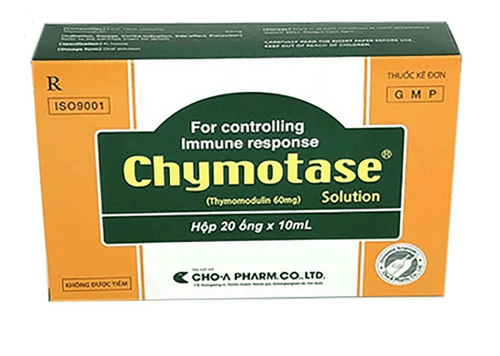This is an automatically translated article.
Weight is considered as one of the factors that assess the development of a child. In each stage, the baby's weight will have certain changes. If the weight is too low for the young age, there is a risk of malnutrition and vice versa. So for 23-26 months old baby weighing 10kg, is there malnutrition?1. Is a 23-26 month old baby weighing 10 kg malnourished?
Parents with young children over 2 years old often wonder if a 23-month-old baby weighing 10kg is enough to have a standard weight? According to nutrition experts, each child will have a different growth rate and the child's weight will depend on many factors such as genetics, environment, nutrition, ... According to the World Health Organization WHO, The standard weight ranges are different and depending on the age of the baby, they are shown through the standard weight table.During the first year of life, the baby's growth rate increases very quickly and in the second year it tends to slow down. How much does a 23 month old baby weigh? Accordingly, the average weight of 23-month-old boys is 12kg (standard weight ranges from 9.5 kg - 15 kg) and for girls it is 11.3 kg (standard weight ranges from 8.9 kg - 14.6 kg). It is normal for a 26-month-old girl to weigh between 11.9 kg and 15.3 kg. For a 26-month-old boy, this parameter also varies, with normal weight in the range of 12.5 kg to 15.7 kg. If the child's weight is lower than normal, it is malnourished and if it is higher, it is overweight.
Thus, the 23-month-old baby weighs 10 kg in the normal weight range and the child is not malnourished. With a 26-month-old baby weighing 10 kg weighing below the average weight, it can be considered as malnourished. However, the child's weight can be changed by external factors such as environment, care and nutrition. So, looking at a child's weight at a single point in time makes it difficult to tell whether a child is growing to normal standards. Instead, parents should monitor the child's weight periodically, for example, measure the baby's weight once a month... In case the baby's weight is abnormal, parents should consult. of a nutritionist for reasonable advice to help children develop better. In addition, it is advisable to build a diet suitable for the child's age and developmental stage.
Watch now: 23-month-old baby is 77cm tall, 5 months old does not increase in height, is it okay?

Bé 23 tháng tuổi nặng 10 kg là ở mức cân nặng bình thường
2. Notes in nutrition when taking care of a 23-month-old baby
Nutrition plays an important role in the development of children in terms of weight, height and intelligence. Understanding the nutritional needs of children will help parents have a better child care regime. How much does a 23 month old baby weigh? In order for the 23-month-old baby's weight to be within the recommended standard, parents should note a number of issues in child care as follows:Should give the child 450-500 ml of milk per day, divided into three times in the morning. between morning, afternoon and evening, about 150 - 180 ml each time. Children's nutrition needs to ensure adequate nutrients including starch, protein, fat, vitamins and minerals. Accordingly, the child's diet should include 3 main meals and 2 snacks in the mid-morning and late-afternoon. Sleep plays a very important role in the development of children. Therefore, parents should teach children the habit of sleeping on time and getting enough sleep, should not let children sleep too late in the evening and get up too late in the morning (children's standard sleep should be from 9pm to 6am. 30). Sleeping time too late will affect the development of children, especially height because growth hormone is only secreted much at night (about 11-12 o'clock at night) when the child is fast asleep. Along with that, sleeping too late will make children wake up later, affecting meals and diet. When parents know the weight of their children 23-26 months old, they can rest assured to balance their nutrition to suit the child's developmental stage. Especially for children who are underweight, it is necessary to supplement with necessary micronutrients such as zinc, chromium, selenium, and vitamins such as vitamin B1, B6, acerola fruit extract (vitamin C), ... to help improve taste, eat well, reach the correct height and weight and exceed the standard. Besides, it also makes the immune system good, strengthens the resistance so that children are less likely to get sick and limit digestive problems.
Watch now: 23-month-old children: Nutrition and oral care
In short, weight is considered one of the factors that evaluate the child's development. In each stage, the baby's weight will have certain changes. If the weight is too low for the young age, there is a risk of malnutrition and vice versa. Therefore, to know if a child is malnourished or not, parents can rely on the weight and height chart. In case if parents notice an abnormality in their baby's weight, consult a nutritionist for appropriate advice to help children develop better.
For children to be healthy and develop well, it is necessary to have a nutritious diet in terms of quantity and quality balance. If children are not provided with adequate and balanced nutrients, it will lead to diseases of excess or lack of nutrients, which adversely affect the comprehensive development of children in terms of physical, mental and motor skills.
Parents should supplement their children with supportive products containing lysine, essential micro-minerals and vitamins such as zinc, chromium, selenium, and B vitamins to help fully meet their child's nutritional needs. At the same time, these essential vitamins also support digestion, enhance nutrient absorption, help improve anorexia, and help children eat well.
Please regularly visit Vinmec.com website and update useful information to take care of your baby and family.













